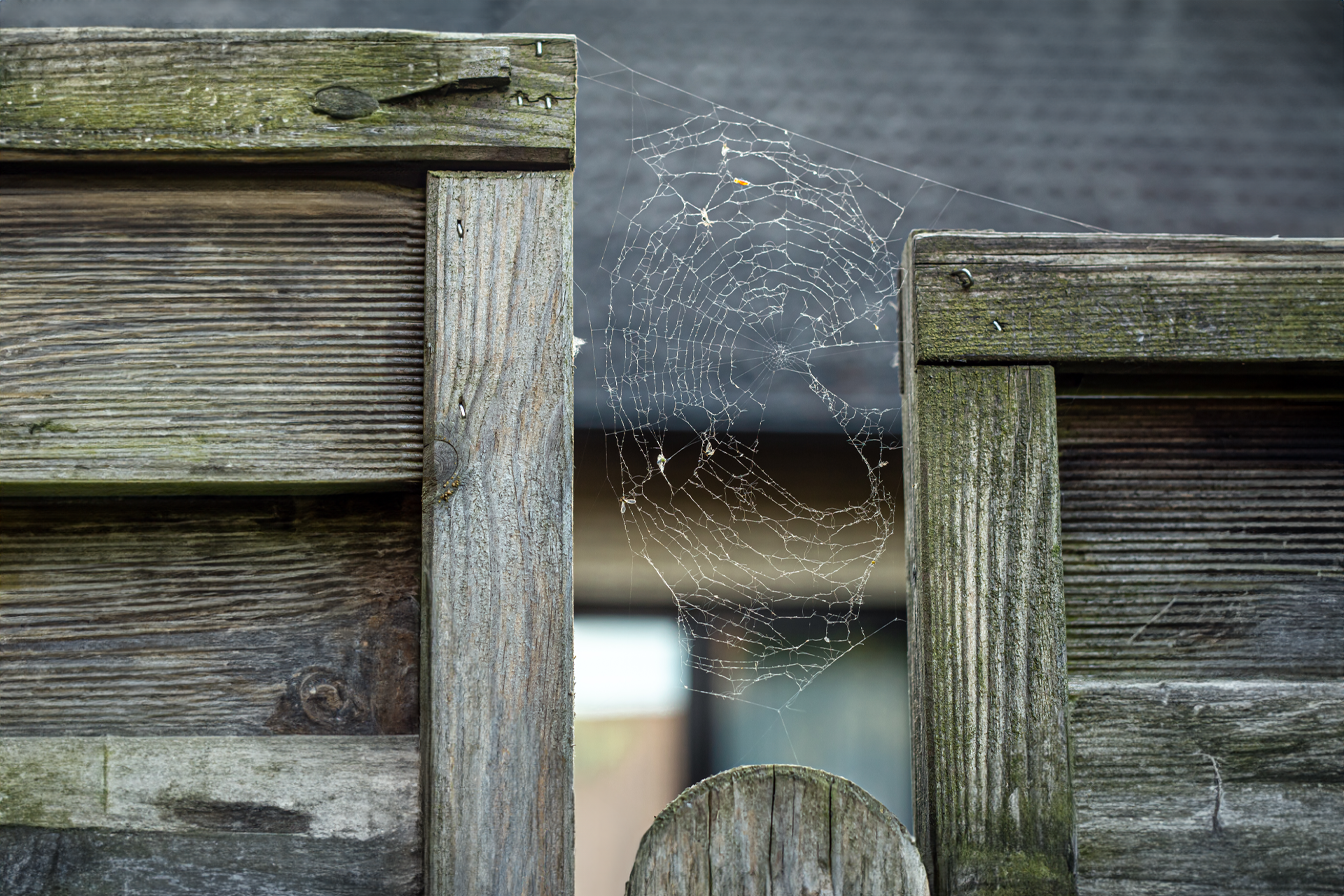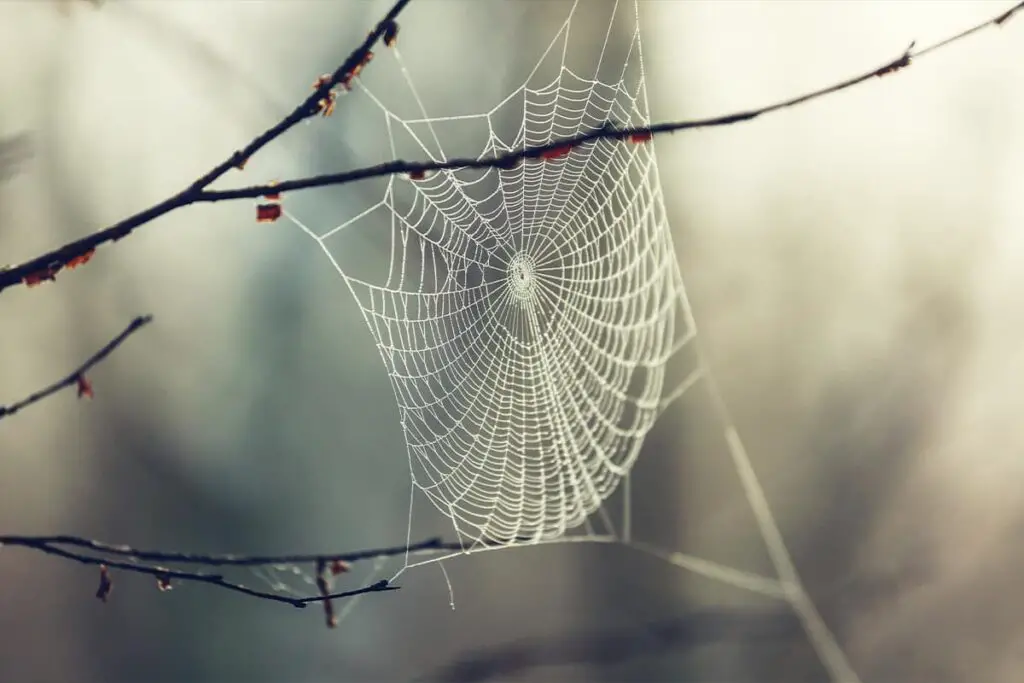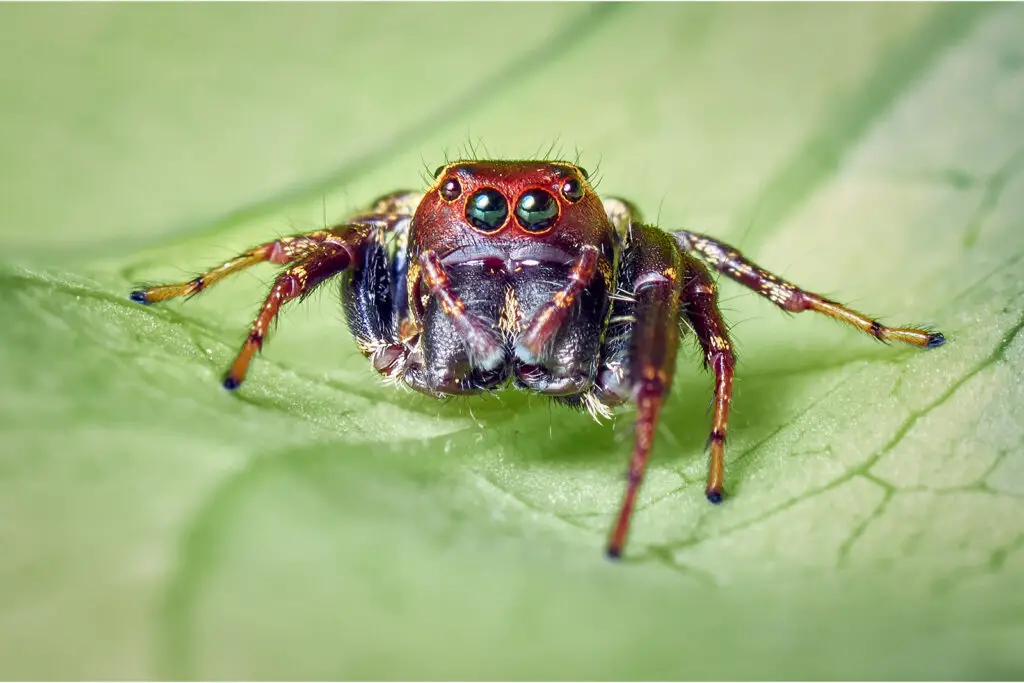
When you discover spider webs in the corners of your home or blocking your pathways, you might wonder if removing the webs will encourage the spiders to leave. The motivation can range from a simple desire for cleanliness to concerns about spider populations in your living spaces.
The common belief is that if you destroy spider webs, the spiders will simply go away. However, the reality is a bit more complex. Spiders exhibit different behaviors when their homes are disturbed. Some may relocate and build new webs in a different area, while others might persistently rebuild in the same location. Understanding the reasons spiders create webs in certain places can help you determine the best way to manage their presence in your environment.
Spider Web Behavior
In understanding spiders and their webs, it’s crucial to know how they respond to their homes being disturbed and their remarkable resilience in reconstruction.
Response to Web Destruction
When you destroy a spider’s web, the spider has to decide whether to repair or abandon the site. The decision is influenced by various factors such as the severity of damage and the location’s continued suitability for catching prey. For example, orb weavers are known to rebuild their webs every day, so web destruction might not phase them as much as others.
Rebuilding After Destruction
Spiders are capable of rebuilding their webs, often in the same location if it remains advantageous. The rebuilding process can be quick, typically occurring overnight, where they reconstruct their intricate designs to continue catching prey efficiently. Your actions may inadvertently contribute to regular web maintenance for some species.
Factors Influencing Spider Departure
When you encounter a spider’s web in your home, unraveling that delicate structure can prompt a response from its architect. Here’s a look at what might drive a spider to pack up and leave, or decide to linger and rebuild.
Species-Specific Tendencies
Different spider species exhibit varied reactions to web destruction. Some, like the orb-weaver, tend to rebuild their webs in the same location daily, even after damage. However, for spiders that don’t rebuild regularly, like tarantulas and funnel-web spiders, destruction of their web might lead to them seeking a new habitat.
- Orb-weavers: Often rebuild in the same spot.
- Non-web-building: May simply move on.
Environmental Influence
Human and Spider Coexistence
Living alongside spiders is a part of everyday life, and understanding how to manage this relationship in a non-destructive manner is beneficial for both you and the spiders.
Deterring Spiders Non-Destructively
To deter spiders from your living spaces without causing them harm, consider natural repellents. Spiders are known to dislike the scent of peppermint oil. Adding a few drops to a spray bottle with water and applying it to areas where spiders frequent can be an effective deterrent. Additionally, maintaining a clean home by vacuuming regularly and reducing clutter can make your space less inviting to spiders.
- Natural repellents: peppermint oil, vinegar.
- Housekeeping: vacuuming, decluttering.
Encouraging Spiders to Relocate
If you’re looking to encourage spiders to move on without destroying their webs, try altering the environment to make it less appealing. Removing webs with a soft brush can prompt spiders to build elsewhere. It’s important to regularly check and gently clear areas where spiders are not welcome, guiding them to find alternative habitats, like your garden, where they can serve the beneficial role of controlling pests.
- Web removal: gentle brushing.
- Habitat alteration: making indoor spaces less appealing, encouraging outdoor relocation.
Frequently Asked Questions
When you interact with a spider’s web, the consequences can affect both the spider and the environment it inhabits. Understanding how spiders handle these disruptions can shed light on their behavior and our impact on their lives.
What happens when a spider’s web is destroyed?
If you destroy a spider’s web, the spider may consume the remains of the web to recycle the materials and then proceed to build a new one. This is an energy-intensive process for the spider.
How do spiders react to their webs being disturbed?
Spiders can react to disturbances by fleeing, hiding, or being aggressive if they feel threatened. Some spiders may opt to repair a web if the damage is minor or start anew if it is destroyed significantly.
Do spiders rebuild their webs in the same location if destroyed?
Spiders often choose to rebuild in the same location if it continues to offer strategic advantages like high insect traffic, although they might move if the area proves to be problematic or dangerous.
Is it common for spiders to abandon their webs?
Abandonment is common if the web is old and no longer serves its purpose for trapping prey, or if environmental factors prompt the spider to relocate for survival.
Can destroying a spider’s web harm the spider in any way?
Destroying a spider’s web can harm the spider by wasting the energy it invested in spinning the web. It might also expose the spider to predators as it works to build a new web.
Will a spider leave its web permanently after it has been tampered with?
While some spiders may leave after a web has been tampered with, others may return to rebuild. This behavior varies depending on the species of spider and the frequency of disturbances.
Driven by a passion for those tiny creatures that rule our world, we at Bug Domain strive to be your go-to resource for information on insects.



